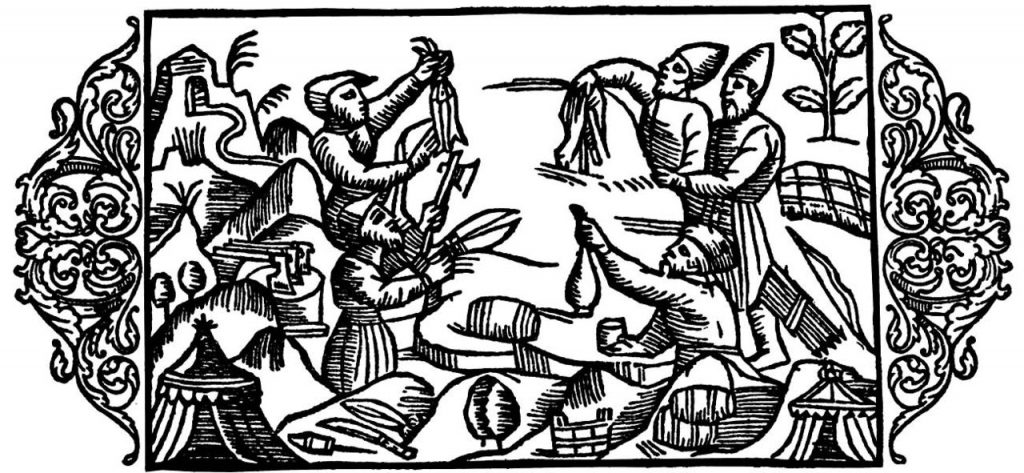SHARINGLAB on gifts, commodities, and consumption in the sharing economy
Published by Monika Rut on the 15th December 2016.

Last month the SHARECITY team had an opportunity to invite Dr David Evans to Dublin for our fourth SHARECITY Sharing Lab, to share his knowledge with us around Practice Theory, Sustainability, Consumption and Sharing Economy. David is currently a researcher at the University of Sheffield and University of Manchester Sustainable Consumption Institute where his research focuses on the sociology, geography and anthropology of consumption, with a particular interest in food and sustainability. The Sharing Lab discussion focused on three main topics: the definition of consumption and different modes of provision; the role of ownership, attachment and disposal in gifts and commodities; and on the sustainability of sharing and emerging transitions in sharing.
To start off, David introduced us to the anthropological and sociological roots of food sharing. By quoting Graeber’s “those who write about consumption almost never define the term” (Graeber 2007: 58), David explained that consumption is a very broad concept, which can be defined as a bundle of activities including the selection, purchase, use, maintenance, repair and disposal of any given product or service. Using the concept of consumption, David introduced the fundamentals of practice theory and spoke about the main approaches that can be found in the sociology and philosophy. He also explained how contemporary scholars study consumption by using the practice theory framework. The main observational shifts in studying consumption are: studying of the moment of practice; focus on a broader range of activities beyond just a mere understanding of ‘consumption’ as an act rather than a process; and applicability of theories of practice in consumption and sustainability research. Important questions were raised around consumption and sharing, different modes of provisions, questions of access, social relations, and sustainability impact.
In the second part of the Sharing Lab we explored different modes of exchange and reflected on the role of gifts and gifting within a broader spectrum of commodities. This discussion was particularly relevant to us as the SHARECITY100 database identified gifting as the predominant form of exchange across all food sharing enterprises. David addressed the problems which can arise in distinguishing between gifts and commodities as there are no external measure of value and no obligations attached to gifts. Given the undertheorized nature of exchange in the anthropological literature (Humphrey and Hugh-Jones 1992), we discussed what would be a useful way to think – substantively and theoretically –about sharing in the broader contemporary food sharing context.To finish the discussion on gifts and commodities we reflected on how sharing relates to the idea of disposal, and the different definitions and experiences of gifting e.g. gifting an object versus gifting a service.
For the final part of the Sharing Lab the conversation focused around themes of consumption and the sharing economy. We approached consumption from a slightly different angle, reflecting on the different processes of consumption e.g. shared production, sharing economy, shared production and capabilities. David further discussed the role conventions play in configuring the organization of economic systems (and food systems), defining conventions as formal and informal agreements that facilitate co-ordination across activities and disparate actors, and the mutually constituted expectations that cut across sites and spaces of production and consumption. Further exploring convention theory, David addressed how conventions are assembled and sustained using an example of the expectation of ‘freshness’ in food systems.
The Sharing Lab with David Evans shed some light on how practice theory can be applied to study consumption, and how different modes of exchange, especially those of gifting and bartering, can be studied within a broader spectrum of sharing economy. For more readings please visit David Evans website
References:
Graeber, D., 2007. Possibilities: Essays on hierarchy, rebellion and desire. AK Press.
Humphrey, C. and Hugh-Jones, S. eds., 1992. Barter, exchange and value: an anthropological approach. Cambridge University Press.
Image Source: Wikipedia,
© 2015 - 2024 ShareCity | Web Design Agency Webbiz.ie







